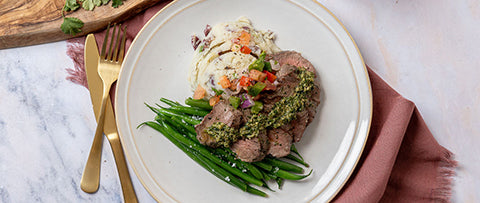As you age, your body begins to need fewer calories. This can sometimes lead to a lack of important vitamins in your diet. Seniors are especially prone to deficiencies in Vitamin C, Vitamin D, B Vitamins, Calcium, and Fiber. While you can take supplements to get these vitamins, the best way to ensure that you are getting enough is through food. Below we will discuss why each of these vitamins is important for seniors and what foods you can eat to get them.
1. Vitamin C
Your immune system begins to weaken as you age and Vitamin C provides it with the boost it needs to prevent colds and other illnesses. Vitamin C protects your immune system by increasing white blood cell production to fight off infection and disease.
Vitamin C also plays a role in heart health and can lower blood pressure levels. Getting enough of this vitamin can reduce your risk for heart disease and stroke.
Food sources of Vitamin C:
- Citrus
- Broccoli
- Brussles sprouts
- Bell peppers
- Strawberries
- White potatoes
- Tomatoes
2. Vitamin D
Vitamin D is important at any age and stage of life because it helps to keep your bones strong. However, seniors are at a higher risk for osteoporosis, so getting enough Vitamin D is essential.
Seniors are also at an increased risk of falls and fractures so Vitamin D is needed to maintain bone health and prevent damage to bones and muscles. While Vitamin D can be found in foods, the best source is direct sunlight.
Food sources of Vitamin D:
- Salmon
- Canned tuna
- Egg yolks
- Mushrooms
- Fortified foods (cows milk, soy milk, orange juice, cereal, oatmeal)
3. Vitamin B12
B12 helps the body make red blood cells and maintain proper nerve function. It also supports your immune system and bone health. Seniors who are not getting enough B12 in their diet can suffer from constipation, diarrhea, loss of appetite, and nerve problems such as numbness, tingling, and muscle weakness.
B vitamins also help convert food into energy.
Food sources of B12:
4. Calcium
Much like Vitamin D, calcium is essential for the health of your bones and teeth. Vitamin D also helps the body with the absorption of Calcium. Calcium also plays a role in muscle movement and heart health.
Calcium is also necessary for your brain health as it helps your brain maintain healthy communication with the rest of your body.
Food sources of Calcium:
- Yogurt
- Soy milk
- Salmon
- Cheese
- Tofu
- Nuts and seeds
- Legumes and grains
- Fortified breakfast cereals and fruit juices
5. Fiber
Fiber is important for your digestive health. It can prevent or relieve constipation by helping waste easily move throughout your body. Fiber also plays a roll in your gut health by promoting the growth of good bacteria in your gut.
Fiber also aids in reducing cholesterol, maintaining a healthy weight, and promoting blood sugar control.
Food sources of Fiber:
- Apples
- Oranges
- Bananas
- Pears
- Whole wheat pasta
- Quinoa
- Lentils
- Black beans
- Chia seeds
Seniors need to make sure that they are getting enough of these key vitamins in their diet in order to stay healthy. While you can take supplements to get these vitamins, the best way to ensure that you are getting enough is through food. Eating a diet rich in fruits, vegetables, whole grains, and fatty fish will help you to get all of the vitamins that you need.






